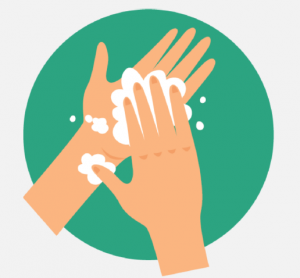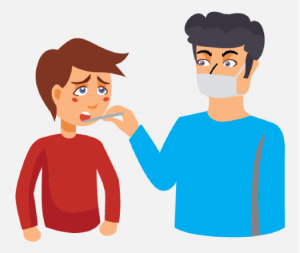Understanding Coronavirus
Coronavirus is an illness that can be spread from person to person through droplets – like from coughing or sneezing. You may hear it called coronavirus, COVID-19, or novel coronavirus.
Click on the accordions below to find out more information regarding signs, symptoms, seeking medical attention, how to stay healthy, and links to additional resources.
Vaccine Information
 Looking to learn more about the vaccine for COVID-19? These resources provide information about the Emergency Use Authorization process, what to expect before and after getting the vaccine, frequently asked questions, and many other resources with important COVID-19 vaccine information.
Looking to learn more about the vaccine for COVID-19? These resources provide information about the Emergency Use Authorization process, what to expect before and after getting the vaccine, frequently asked questions, and many other resources with important COVID-19 vaccine information.
Safety Tips
 The resources below explore a wide range of topics, providing information designed to help keep you healthy during the COVID-19 pandemic, both physically and mentally. These resources are updated frequently, so check back often for new information.
The resources below explore a wide range of topics, providing information designed to help keep you healthy during the COVID-19 pandemic, both physically and mentally. These resources are updated frequently, so check back often for new information.
Video Resources
Check back here often for new videos with new information, tips, and suggestions for managing different aspects of the COVID-19 pandemic. All videos featured here can also be found on the AID in PA website.
Additional Resources and Information
Below you will find additional resources and information for parents, caregivers, direct support professionals, and individuals with autism to manage a variety of situations related to the current COVID-19 pandemic. This section will be changing as more information and resources become available, so check back often!



 Looking to learn more about the vaccine for COVID-19? These resources provide information about the Emergency Use Authorization process, what to expect before and after getting the vaccine, frequently asked questions, and many other resources with important COVID-19 vaccine information.
Looking to learn more about the vaccine for COVID-19? These resources provide information about the Emergency Use Authorization process, what to expect before and after getting the vaccine, frequently asked questions, and many other resources with important COVID-19 vaccine information. The resources below explore a wide range of topics, providing information designed to help keep you healthy during the COVID-19 pandemic, both physically and mentally. These resources are updated frequently, so check back often for new information.
The resources below explore a wide range of topics, providing information designed to help keep you healthy during the COVID-19 pandemic, both physically and mentally. These resources are updated frequently, so check back often for new information. Wearing a mask is important for helping you and others in the community stay healthy and prevent the spread of COVID-19. Even as activities begin to open up around the state, it’s important to follow the guidelines and wear a mask when you’re in the community. Below are resources designed to help individuals with autism and their families get comfortable wearing a mask and understanding why they are important.
Wearing a mask is important for helping you and others in the community stay healthy and prevent the spread of COVID-19. Even as activities begin to open up around the state, it’s important to follow the guidelines and wear a mask when you’re in the community. Below are resources designed to help individuals with autism and their families get comfortable wearing a mask and understanding why they are important. Celebrating the holidays this year is going to look a little different than usual. This collection of resources provides tips on how to stay connected with family and friends during the holiday season while staying safe and healthy. Resources include a one-page guide to hosting small gatherings safely, a social story for understanding changes that may happen over the holidays due to COVID, and videos with additional information and suggestions.
Celebrating the holidays this year is going to look a little different than usual. This collection of resources provides tips on how to stay connected with family and friends during the holiday season while staying safe and healthy. Resources include a one-page guide to hosting small gatherings safely, a social story for understanding changes that may happen over the holidays due to COVID, and videos with additional information and suggestions. ASERT has developed a simple reminder to keep you and your co-workers safe. If you’re an employer, you can post the flyer as a reminder for your employees. If you’re a parent, provider, or self-advocate, you can bring these to your employer and ask them to post them to help keep everyone safe at work.
ASERT has developed a simple reminder to keep you and your co-workers safe. If you’re an employer, you can post the flyer as a reminder for your employees. If you’re a parent, provider, or self-advocate, you can bring these to your employer and ask them to post them to help keep everyone safe at work.






